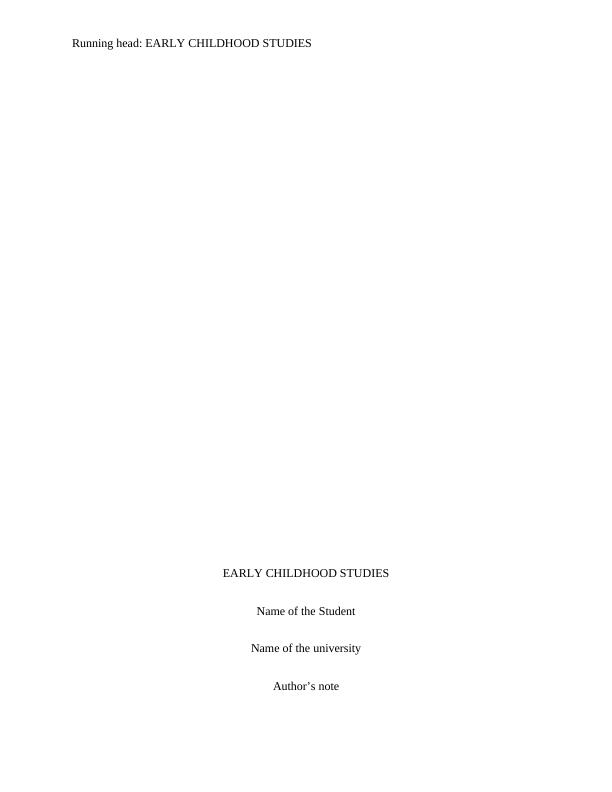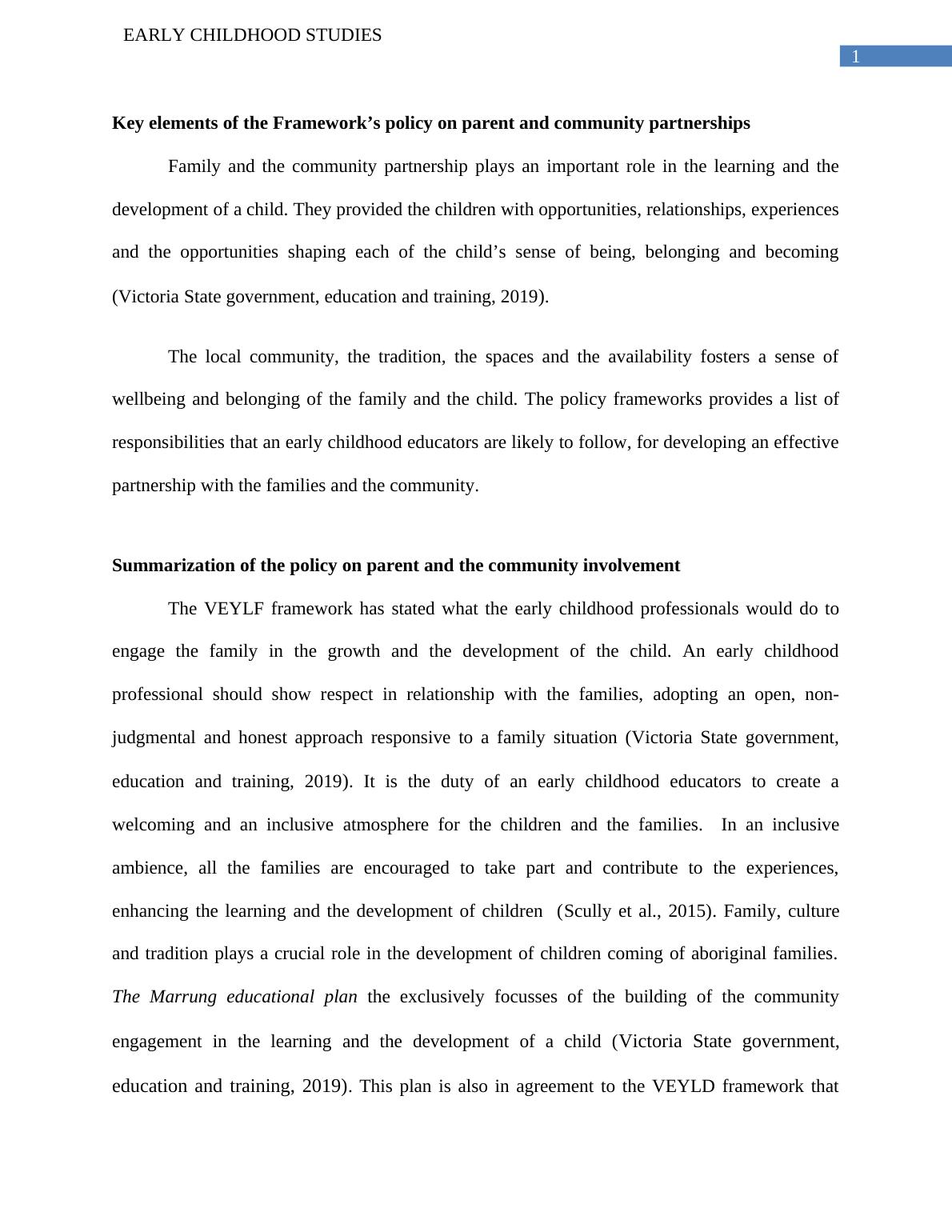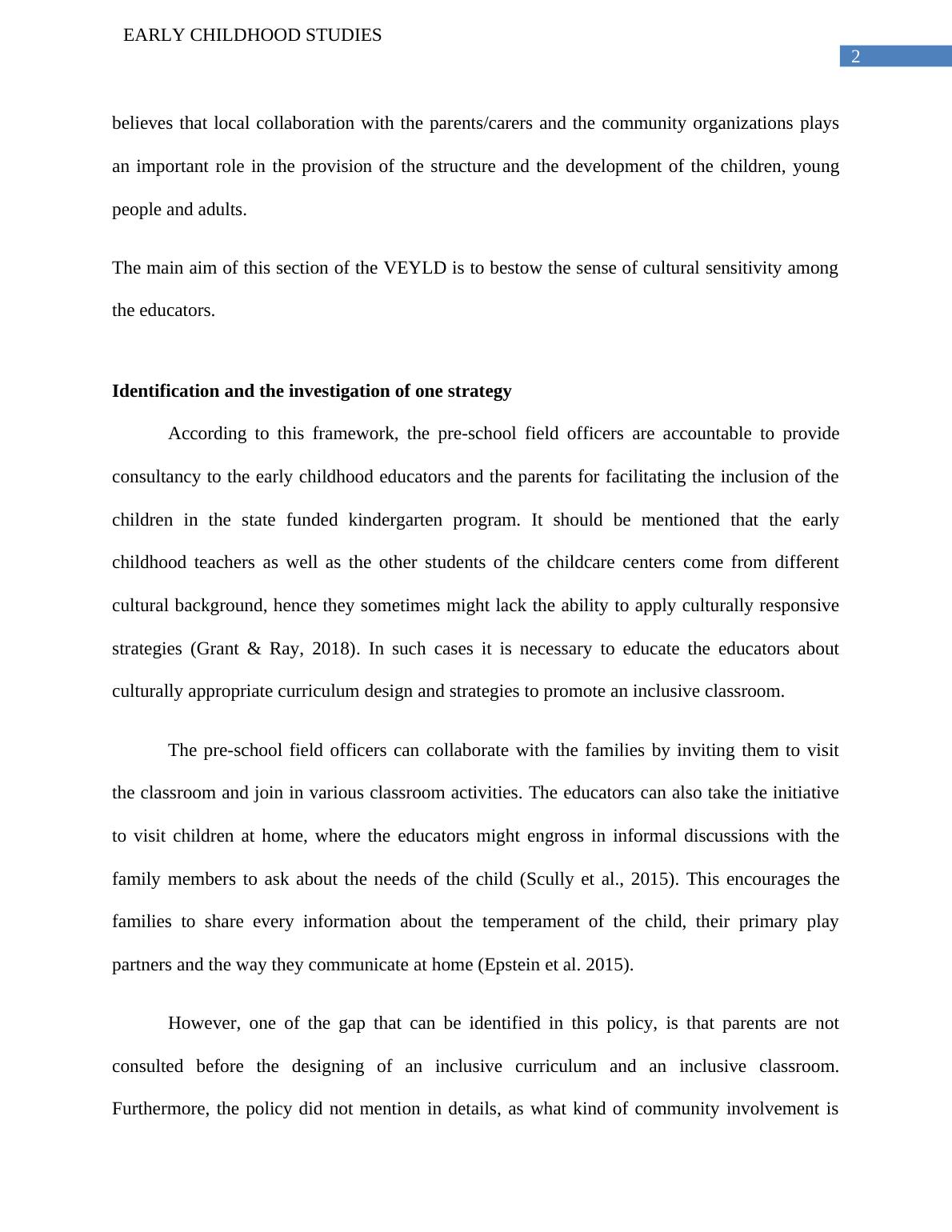Key Elements of Framework's Policy on Parent and Community Partnerships
Analyzing strategies in policy that promote family and community involvement in early childhood education based on the Victorian Early Years Learning and Development Framework.
6 Pages977 Words151 Views
Added on 2023-04-05
About This Document
This article discusses the key elements of the framework's policy on parent and community partnerships in early childhood studies. It emphasizes the importance of family and community involvement in a child's learning and development, and provides strategies for educators to engage families and create an inclusive atmosphere. The article also highlights the need for cultural sensitivity and collaboration with parents and community organizations.
Key Elements of Framework's Policy on Parent and Community Partnerships
Analyzing strategies in policy that promote family and community involvement in early childhood education based on the Victorian Early Years Learning and Development Framework.
Added on 2023-04-05
ShareRelated Documents
End of preview
Want to access all the pages? Upload your documents or become a member.
Key elements of the Framework’s policy on parent and community partnerships
|5
|888
|192
Analysis and Observations based on key principles of Belonging
|10
|2592
|28
Importance of Children's Rights in Early Childhood Studies
|8
|1583
|387
Childhood Educational Policies
|11
|2973
|130
Perspective on Working in Partnership With Families
|7
|890
|142
Family, Community and Citizenship in Early Childhood
|8
|2381
|246



